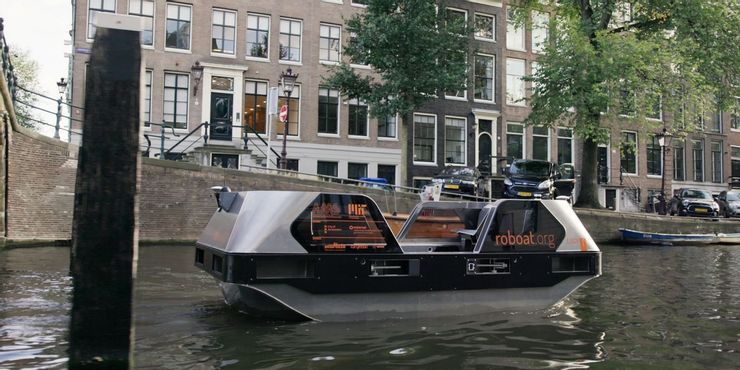Amsterdam is testing an all-electric, fully autonomous, and modular vessel called the ‘Roboat’ which can ferry passengers and collect garbage.
The city of Amsterdam in the Netherlands is testing two full-size prototypes of the ‘Roboat’ — an all-electric, fully autonomous, and modular vessel that can be transformed and adapted to serve different purposes at different times. Even though electric cars are becoming more mainstream, all-electric boats are still relatively rare and fully autonomous ones even more so. However, their numbers are on the rise as people look for more efficient vessels that are both cheap to run and less harmful to the environment.
The modular construction helps the Roboats to perform the different functions, with seating for a five-person water taxi or waste collection bins being swapped in or out, while the universal hull remains underneath. The Roboat is developed by the MIT’s Computer Science and Artificial Intelligence Laboratory (CSAIL) and Senseable City Laboratory in collaboration with the Amsterdam Institute for Advanced Metropolitan Solutions (AMS).
The Roboats can operate for around ten hours on a single charge and can even be charged wirelessly. According to the official Roboats website, the vessels use lidar and an array of cameras for a 360-degree view that helps them navigate, much like autonomous cars.
Talking to CNET, Carlo Ratti, MIT professor and director of the Senseable City Lab, said that the vessels will eventually be controlled with a touchscreen interface just like modern smartphones.
Source: screenrant.com


